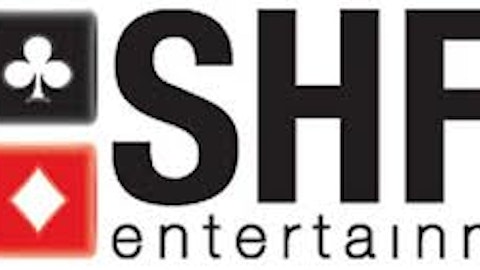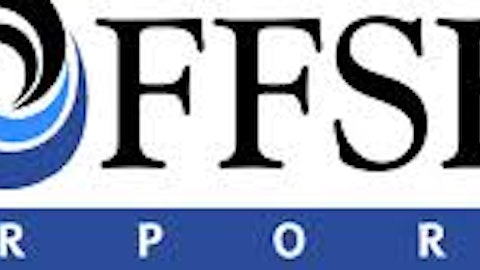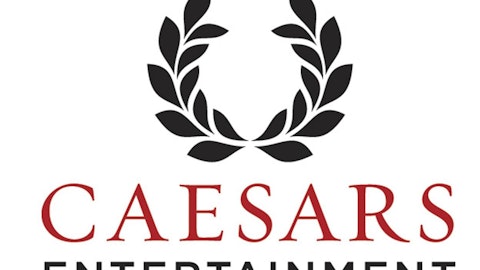The stakes are big. That’s the primary reason why Nevada Gov. Brian Sandoval immediately signed Bill AB114 this February to legalize online gaming in his state. The measure was earlier passed unanimously by the state’s Assembly and Senate.
In effect, Nevada has created a potential market of between $4 billion and $10 billion annually by legalizing online gambling, according to Nevada Gaming Commission chairman A.G. Burnett. The new law mandates the commission to formulate a set of regulations empowering the governor to grant online venue gaming licenses, and to go into agreements with other states in the U.S. to provide interactive gambling.

It’s possible that Nevada’s legislation could trigger a domino effect. As New Jersey legislators are mulling over the governor’s conditions, other states such as Massachusetts, Mississippi, Iowa, and California, plus four other states, are reportedly considering their own online gaming statutes.
So who wins in online gaming?
With the Nevada law allowing online gaming taking effect immediately, the state’s gaming commission has already received 20 applications for licenses from various operators, software, and equipment vendors, according to the gaming commission’s Burnett. Nevada, therefore, appears to be quickly shaping up as the U.S. base for online gaming firms. Some industry analysts say that this business of online gaming could be very competitive, require a long time to roll out, and need extensive promotions.
Given this view, companies with established tech platforms on online gaming and strong presence in Nevada, coupled with a U.S.-wide network, are likely to have a head start in capturing this tantalizing market. Boyd Gaming Corporation (NYSE:BYD) already has all these strengths and attributes. It ranks among the largest casino entertainment operators in the U.S., owning 22 game properties nationwide.
Notably, two of Boyd’s four segments are in Nevada: the Las Vegas Locals and Downtown Locals. The two other segments are Atlantic City, N.J., and Midwest and South. All told, the company not only in operates in Nevada and New Jersey, but also in Mississippi, Illinois, Iowa, Kansas, Louisiana, and Indiana.
From these operations, Boyd Gaming Corporation (NYSE:BYD) generated $613.3 million in net revenues for the 2012 third quarter, up 3.9% from $590.2 million the year-ago quarter. Adjusted EBITDA for the 2012 quarter slipped to $103.6 million, from $122.0 million a year earlier.
Online gaming technology is within Boyd’s grasp to help the company further fortify its bottom line. It launched a 90-day field trial this February at Boyd’s 2,800-room Borgata Hotel Casino & Spa in Atlantic City, letting guests play video poker and slots via their room’s remote-controlled TV sets. The results of this E-Casino experiment are expected to give NJ lawmakers some insights on how to tweak the state’s online gaming legislation, and finally win the nod of Governor Christie.
More solid footing on land needed for Allin
The Borgata field trial uses the DigiCasino in-room gaming platform developed by Allin Interactive, a subsidiary of Allin Corporation (PINK:ALLN). It’s already been used for several years aboard international cruise ships. The New Jersey e-casino is Allin’s first land-based operation in in-room gaming in the U.S., according to the company.
Allin will certainly need to see more of its online gaming technology gaining adherents on land. In the year ended Dec. 31, 2011, its latest available financial results, the company had a net loss of nearly $2.4 million or $0.25 on each basic and diluted share. Total revenue for the period amounted to $10.16 million.
Added luster for SHFL
SHFL entertainment Inc (NASDAQ:SHFL), on the other hand, is right at the cusp of what Nevada Gov. Sandoval called “the next frontier of gaming in Nevada,” as he signed Bill AB114 into law.
SHFL, a global gaming supplier, not only has a license to make online poker games in the state, but also has its headquarters and a manufacturing facility right in Las Vegas. Its other manufacturing facility is in Milperra, New South Wales, Australia. The company also manufactures gaming utility products such as automatic card shufflers, besides online gaming platforms.
The Nevada online gambling approval should definitely help polish Shuffle Master’s luster in the eyes of some analysts, who downgraded and cut price targets on its stocks in recent months. In its last quarterly earnings report issued last Dec. 17, the company had a quarterly $0.19 EPS, adrift by $0.01 in the $0.20 Thomson Reuters consensus estimate. Revenue for the quarter amounted to $73.30 million, which is higher than the $68.48 million consensus estimate.
At Las Vegas Sands Corp. (NYSE:LVS), there has to be a 180-degree paradigm shift before this operator of casinos and integrated resort facilities can get on the online gaming derby. Its chairman, Sheldon Adelson, is strongly against online gaming, which he believes lacks the technological safeguards against underage players. Anyhow, the company is primarily drawing its success from its operations in Macau where its casino revenues during the 2012 fourth quarter rose 48% to $1.97 billion. For all of 2012, Macau generated $6.4 billion or nearly 58% of the company’s $11.3 billion total revenue.
So place your bets, folks
Shuffling the cards, it looks like both Boyd and SHFL have the winning hands with the Nevada online gaming development. Besides, if the foreseen up-to-$10 billion U.S. market on online gaming doesn’t totally pan out, the two have other properties to draw strengths from.
For instance, Boyd acquired Peninsula Gaming LLC last November, thereby expanding its footprint into Kansas and Iowa, as well as adding more markets in Louisiana. SHFL, for its part, has more up its sleeves besides its operations in Las Vegas and Australia. The company’s electronic gaming machines are also popular in the European and Asian markets, where online gaming has long been legal.
The article Online gaming: rolling a $10-billion dice originally appeared on Fool.com and is written by Arturo Cuevas.
Copyright © 1995 – 2013 The Motley Fool, LLC. All rights reserved. The Motley Fool has a disclosure policy.





